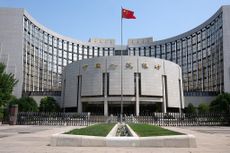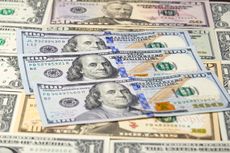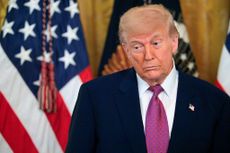Currencies
The latest news, updates and opinions on Currencies from the expert team here at MoneyWeek
-

Investors should plan for an age of uncertainty and upheaval
Tectonic geopolitical and economic shifts are underway. Investors need to consider a range of tools when positioning portfolios to accommodate these changes
By James Proudlock Published
-

How much gold does China have – and how to cash in
China's gold reserves are vastly understated, says Dominic Frisby. So hold gold, overbought or not
By Dominic Frisby Published
-

Debasing Wall Street's new debasement trade idea
The debasement trade is a catchy and plausible idea, but there’s no sign that markets are alarmed, says Cris Sholto Heaton
By Cris Sholto Heaton Published
-

The challenge with currency hedging
A weaker dollar will make currency hedges more appealing, but volatile rates may complicate the results
By Cris Sholto Heaton Published
-

What's behind the big shift in Japanese government bonds?
Rising long-term Japanese government bond yields point to growing nervousness about the future – and not just inflation
By Cris Sholto Heaton Published
-

Why strong currency is the key to upward mobility
Change your social status and your life by saving money in strong currencies, says Dominic Frisby
By Dominic Frisby Published
-

Is Donald Trump putting the US dollar in danger?
Donald Trump's administration sees one of its greatest advantages – the US dollar – as a burden. Gold is the obvious beneficiary, says Cris Sholto Heaton.
By Cris Sholto Heaton Published
-

Has Trump brought the reign of King Dollar to an end?
Stocks soared late last year on bets that Trump would initiate an American golden age. It hasn’t worked out like that. The dollar has weakened in 2025, says Alex Rankine
By Alex Rankine Published
-

Is Wise a trillion-dollar opportunity for investors?
Foreign-exchange transfer service Wise has the potential to become the Amazon of its sector – here's why you should consider buying this stock now
By Jamie Ward Published
